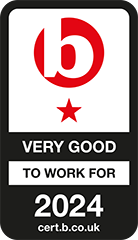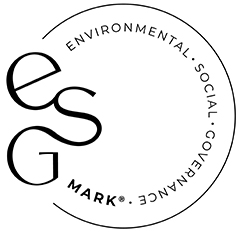Our monthly round-up of the latest VAT news.
VAT fraud
This was a case when fraudsters had submitted a form to HMRC to have the bank account details changed for a large business (FTSE100).
The fraudsters knew (or, using some VAT knowledge, assumed) that the business was due a large repayment, so they attempted to have the details changed to an account that they had control over.
When such submissions are made (using a VAT 484 form), HMRC writes to the business to confirm the changes. Recently, the delay in getting that letter to the business has opened an opportunity for fraudsters to change the details and get the payment out of the account before the business realises what’s been done.
Thankfully, HMRC staff were suspicious about the details of the account for such a large business, and further enquiries highlighted the fraud. However, they cannot do this for all businesses, so if you are a regular repayment business (e.g., food retailer, builder of new houses, etc.), please check online that your bank account details haven’t changed without your knowledge, especially before you put in that next VAT reclaim return.
Phones for who?
When the iPhone 4 was launched in 2010, a business gave many students vouchers to buy the phones so that the business could resell them for a profit.
The business had records of the voucher purchases and retail invoices from Apple for the phones, including serial numbers. However, as there were no full tax invoices, HMRC disallowed the input tax. This was over £500,000. The company has appealed to the Tribunal. HMRC subsequently applied for the appeal to be struck out as it had no reasonable chance of success (this was in 2023 for a matter that commenced with the submission of a VAT return for the 12/10 period). A previous case was lost on the basis that the purchases were made by a third party (who was not an employee), so the input tax could not be that of the business.
The business appealed against the strike-out and was successful. This was on the basis that the case was not “on all fours” with the case that HMRC quoted in their strike-out appeal and that the appellant had no requirement to demonstrate that it had a strong case but that it had a reasonable one. Therefore, this case will now go to Tribunal, nearly 15 years since the claim.
Share sale is exempt
The taxpayer was a holding company that sold 100% of its shareholding to a trading company. The money raised from this sale was used to construct a hotel. The taxpayer’s argument was that as the hotel was used for making taxable supplies and the whole reason for selling the shares was to raise capital for this project, the VAT incurred on the share sale was recoverable. HMRC lost this case at the First and Upper Tier but appealed to the Court of Appeal. The Court of Appeal has agreed with HMRC that there is not a direct and immediate link between the share sale and the subsequent taxable supplies of a hotel. As such, the VAT incurred on the professional fees for the share sale is irrecoverable.
Due to HMRC losing the first two hearings, several businesses may have made submissions to HMRC for repayment in similar circumstances. On the basis of this latest ruling, it would seem that these repayments will now be rejected.
Health services and time
Not part of the current election debate, but an area in health and VAT and whether the services qualify for exemption or not.
The exemption applies when a supply is made by a relevant health professional in the diagnosis and treatment of a patient; if the works are not linked to the health of the individual (usually referred to as cosmetic), they are standard-rated.
The public notice makes it clear that the health professional must be supplying services related to the examination, diagnosis, and/or treatment of an individual. This means that testimony from a doctor in a court of law as to the ability of an individual to perform certain tasks is standard-rated, as are the services of a doctor as a gardener (yes, it has been tried).
This has always been a contentious issue, as what may be one person’s “treat” may be key to another’s mental health.
The business in question operated a “Skin Clinic” in Harley Street and was not registered for VAT. The business was operated by a registered health professional (they were nurses), and the Tribunal summarised the offerings as including:
“Restylane, Pix cannula, Teosyal light filling redensity, muscle relaxing injections, dermal roller, glycolic acid peel, the easy TCA peel, Botox, Belotero volume, dermal fillers, full face lift (by injection), Hollywood eye magic serum, Belotero soft, and sclerotherapy."
However, the Tribunal found that the business was not able to prove that the supplies made fell within the medical exemption. It’s important to note that they also reviewed how the business advertised its services to help it reach its conclusion.
The appeal was generated by an initial assessment issued by HMRC for over £270,000 for a long period of 1 May 2007 (when HMRC believed the business should have registered) to 28 February 2018. This was issued on 7 September 2018. In October 2020, the business submitted a nil VAT return for the 02/18 period. This cancelled the assessment issued in September 2018. HMRC issued a new assessment for the 05/07 to 02/18 period on 18 March 2021.
The dates are important as the businesses’ second part of the appeal was that the later assessment was out of time. This is on the basis that HMRC has 12 months from the date that they have all the necessary information to raise an assessment.
HMRC argued that the date of the nil return submission was the date from which the 12-month period ran. The Tribunal took the view that the nil return did not provide HMRC with any additional information, so the 2021 assessment was out of time.
The ruling on whether the services fell within the health exemption adds to a growing trend of such supplies being ruled to be taxable, but the assessment being out of date was fortunate as HMRC had effectively cancelled the 2018 assessment rather than amend it. Had they done the latter, the result may have been very different. This highlights the importance of establishing timelines and procedures when dealing with HMRC, especially in the last few years where response times have been rather long.
Poppadoms
It’s been confirmed that Walkers are to appeal the decision to standard-rate their “Sensations” poppadoms on the basis that they resemble potato crisps. Stay tuned.
Get in touch
If you would like to discuss any of these VAT updates in more detail, please contact Ian Marrow via ian.marrow@rickardluckin.co.uk
To receive future copies of our VAT newsletter, or any of our other newsletters, directly to your inbox, please
register your interest via our preference centre.
If you have any questions about the above, or would like more information specific to your circumstances, please enter your email address below and we will get in touch:













